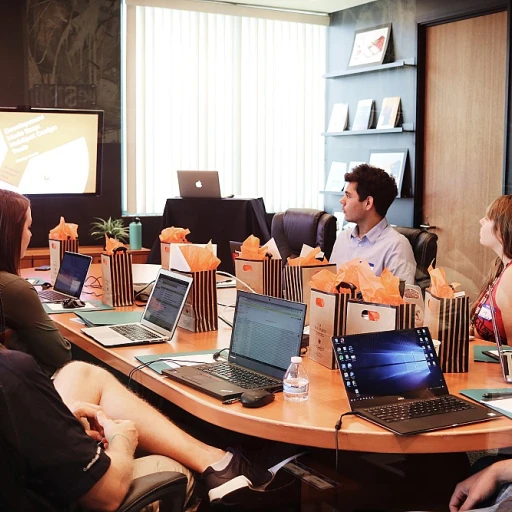
Understanding the Unique Administrative Landscape in New Zealand
Exploring the Dynamics of New Zealand's Administrative Environment
Understanding the administrative landscape in New Zealand is crucial for optimizing efficiency within any business. Each company operates within a precise framework shaped by regional distinctions, regulatory requirements, and industry-specific demands. Knowing these nuances can significantly boost the execution of administrative tasks. In New Zealand, administrative professionals navigate a myriad of duties that range from handling data and project management to refining executive support processes. Robust management structures are essential for balancing these roles, ensuring that tasks are executed without compromising quality or time. One key aspect of the administrative environment is the unique blend of office management skills necessary in this region. Administrative assistants, and their executive counterparts, must possess adaptable skills to cater to various business needs. Their roles often extend to implementing workflow automation and utilizing administrative software, which can streamline processes and enhance overall operational efficiency. As businesses evolve, administrative roles extend beyond traditional frameworks, demanding proficiency in tasks such as calendar management and expense tracking. Implementing strategies to efficiently manage these tasks not only optimizes work performance but also supports personal assistants and team members in achieving collective goals. Efficiency is further augmented through the deployment of software tools tailored to specific administrative needs. Various programs aid in simplifying tasks like data entry and document organization which, in turn, enhances team productivity. The intrinsic administrative skills, fostered through training and personal development, help in creating a cohesive work environment. This synergy between team members catalyzes improved performance and is complemented by advanced technology adoption. In any New Zealand organization, understanding these aspects of the administrative landscape will cultivate an atmosphere ripe for continuous improvement and sustainable success.Efficient Task Management Strategies
Mastering Task Management for Effective Office Operations
Efficiently handling administrative tasks in a New Zealand company can significantly enhance productivity and ensure smooth office operations. Office managers play a crucial role in overseeing various administrative activities. To excel in these administrative roles, understanding the dynamics of task management is essential.
Office managers and administrative assistants should focus on prioritizing tasks to ensure urgent and important activities are handled promptly. Implementing time management techniques helps in allocating the right amount of time for each administrative task, thereby boosting efficiency and reducing work-related stress.
Adopting an organized approach to task management not only alleviates administrative burden but also ensures that the workflow remains uninterrupted. Establishing clear objectives for every administrative task can be immensely beneficial. Leveraging project management tools and software aids in tracking progress while managing administrative tasks. This approach not only improves the quality of work but also enhances the overall management processes within the organization.
When managing tasks, office managers typically ensure that each team member knows their roles and responsibilities. This involves regular communication and updates about ongoing projects and tasks administrative. Administrative assistants can further help in this regard by acting as the bridge between various teams, ensuring effective communication flows, and addressing any queries or obstacles that may arise during the process.
Additionally, incorporating workflow automation into daily operations can greatly reduce manual tasks such as data entry, calendar management, and expense management. The adoption of administrative software tools is instrumental in contemporary office settings, offering features specifically designed to streamline administrative tasks.
Investments in administrative software provide executive assistants and office teams with resources that improve accuracy and efficiency, allowing administrative professionals to focus on more strategic activities. While the introduction of technology is vital, it is important to ensure that all team members are adequately trained to use these tools, paving the way for seamless integration into existing workflows.
Efficient task management also involves regular assessments and adjustments. A proactive approach towards evaluating the strategies and tools in place ensures that the administrative team can continue delivering exceptional results while adapting to the evolving needs of the business environment.
Leveraging Technology for Administrative Efficiency
Maximizing Productivity with Technological Tools
In today’s fast-paced business environment, New Zealand companies can significantly benefit from leveraging technology to streamline administrative tasks. Efficient task management strategies are essential, but when combined with the right technological tools, they result in optimal performance. Office managers can enhance their administrative professionals' capabilities by integrating specialized software.
First and foremost, adopting administrative software tailored for local businesses is crucial. Such tools can provide a comprehensive overview of ongoing administrative activities, including tasks, data entry, and management. By streamlining data input processes and automating workflow, team members can focus on high-impact tasks instead of getting bogged down with repetitive manual work.
Here are several tech-driven solutions that could help manage administrative tasks more effectively:
- Workflow Automation Software: Implementing such tools helps in automating routine tasks, reducing error rates, and shortening process execution times. This allows administrative assistants to allocate more time to tasks that require human insights.
- Project Management Platforms: These platforms are essential in managing tasks administrative, enhancing collaboration among executive assistants, and ensuring efficient communication across the entire organization. They can also integrate time management and calendar management, centralizing all administrative activities.
- Data Management Systems: They provide an organized approach to data entry and retrieval, ensuring smoother operations and quick access to critical business information. Efficient systems lessen the administrative burden, streamline operations, and enhance administrative professionals’ job satisfaction.
- Expense Management Tools: Such tools can simplify tracking and reporting expenses, which are crucial segments of administrative roles. By using these digital solutions, teams can maintain accurate budgeting and expenditure records with minimal administrative work.
By integrating these technological solutions, New Zealand companies can empower their office managers and administrative assistants to manage their time more effectively. In turn, this results in a more collaborative and responsive office environment, supporting the overall organizational goals.
Building a Collaborative Office Environment
Fostering a Culture of Collaboration and Communication
Creating a collaborative office environment can dramatically improve how administrative tasks are handled within a business. The foundation of this is effective communication between team members, ensuring each person understands their role and responsibilities.- Encourage regular meetings: Holding weekly or bi-weekly check-ins can help administrative professionals and executives stay on the same page. Discuss progress, obstacles, and upcoming priorities.
- Utilize collaborative tools: Software tools designed for project management and task sharing, such as Asana or Trello, can streamline the management of administrative activities. These tools allow for clear delegation and tracking of administrative work.
- Share administrative tasks: Sharing tasks among team members promotes ownership and reduces individual workload. This can be especially effective for monotonous tasks like data entry or calendar management.
- Provide feedback loops: Establish processes for team members to offer feedback about administrative practices and workflow automation. This boosts morale and encourages continuous improvement.
Aligning Team Goals with Administrative Objectives
Alignment within the office is crucial for maximizing efficiency. Aligning goals at the team and organizational level helps administrative assistants and managers understand how their work contributes to broader business objectives.- Integrate administrative roles within the larger business strategy: Administrative tasks should not be seen in isolation. Their value increases significantly when tied into the company's strategic goals.
- Facilitate team-building activities: Strengthening relationships promotes a more cohesive work environment. Organized gatherings can improve relationships and foster cooperation.
- Promote a learning culture: One of the most effective ways to boost administrative skills is through continuous education and training. Developing a supportive space for professional growth enhances skills and productivity within the organization.
Training and Development for Office Managers
Enhancing Skills for Administrative Excellence
In the dynamic landscape of New Zealand's business environment, the role of office managers is pivotal in ensuring smooth administrative operations. Investing in training and development is crucial for enhancing the administrative skills of office managers and their teams. This not only boosts efficiency but also empowers administrative professionals to tackle challenges effectively.
To foster a culture of continuous learning, consider the following strategies:
- Workshops and Seminars: Regular workshops can help office managers and administrative assistants stay updated with the latest trends in administrative work, including workflow automation and project management techniques.
- Online Courses: Platforms offering courses on administrative software, time management, and data entry can be a valuable resource for skill enhancement. These courses are flexible and can be tailored to fit the busy schedules of administrative professionals.
- Mentorship Programs: Pairing less experienced team members with seasoned professionals can facilitate knowledge transfer and provide practical insights into effective administrative roles.
Utilizing Technology for Skill Development
Leveraging technology is not only about streamlining administrative tasks but also about enhancing the skills of your team. Implementing software tools that offer training modules can be a game-changer. These tools provide hands-on experience with administrative activities, helping team members become proficient in using technology to manage tasks efficiently.
Moreover, integrating technology into the training process can help track progress and identify areas for improvement. This data-driven approach ensures that the training is effective and aligned with the organization's goals.
Creating a Supportive Learning Environment
Building a collaborative office environment is essential for fostering a culture of learning and development. Encourage open communication and feedback among team members to identify skill gaps and address them promptly. Providing opportunities for administrative assistants to take on new responsibilities can also aid in their professional growth.
Ultimately, the goal is to create a supportive environment where administrative professionals feel valued and motivated to enhance their skills. This not only benefits the individuals but also contributes to the overall success of the organization.
Measuring Success and Continuous Improvement
Tracking Progress and Fostering Improvement
In order to effectively streamline administrative tasks within New Zealand companies, it is imperative to measure success and strive for continuous improvement. This approach ensures that the office environment remains efficient and adaptive to ever-changing business needs. Here’s how to achieve this:
- Implement Key Performance Indicators (KPIs): Define and track KPIs relevant to administrative roles such as task completion rates, time efficiency, and software tool usage. By monitoring these indicators, you can assess performance and identify areas for improvement.
- Utilize Workflow Automation: Embrace workflow automation tools for routine administrative activities. This not only alleviates the workload for administrative assistants but also provides valuable data insights for improving administrative processes.
- Conduct Regular Team Assessments: Regular assessment of skill sets and performance metrics helps in identifying gaps in administrative skills among team members. Tailored training programs can help bridge these gaps and enhance the overall efficiency of administrative tasks.
- Encourage Feedback Loops: Encourage team members to share feedback on process improvements, administrative software usability, and personal assistant collaborations. This fosters an environment of open communication and collective problem-solving.
- Leverage Project Management Tools: Adopt project management software that integrates various administrative tasks, enabling better time management and alignment with business goals. This approach aids in tracking progress and facilitating collaboration among executive assistants and administrative professionals.
- Regularly Review Organizational Goals: Align administrative activities with the broader goals of the business. Routinely reviewing these objectives ensures that administrative work remains relevant and contributes to the company’s success.
Pursuing continuous improvement by regularly measuring success within administrative functions not only enhances operational efficiency but also contributes to a dynamic and productive workspace. Administrative assistants, with the support of efficient management practices and technology integration, are crucial to achieving sustainable business growth.












